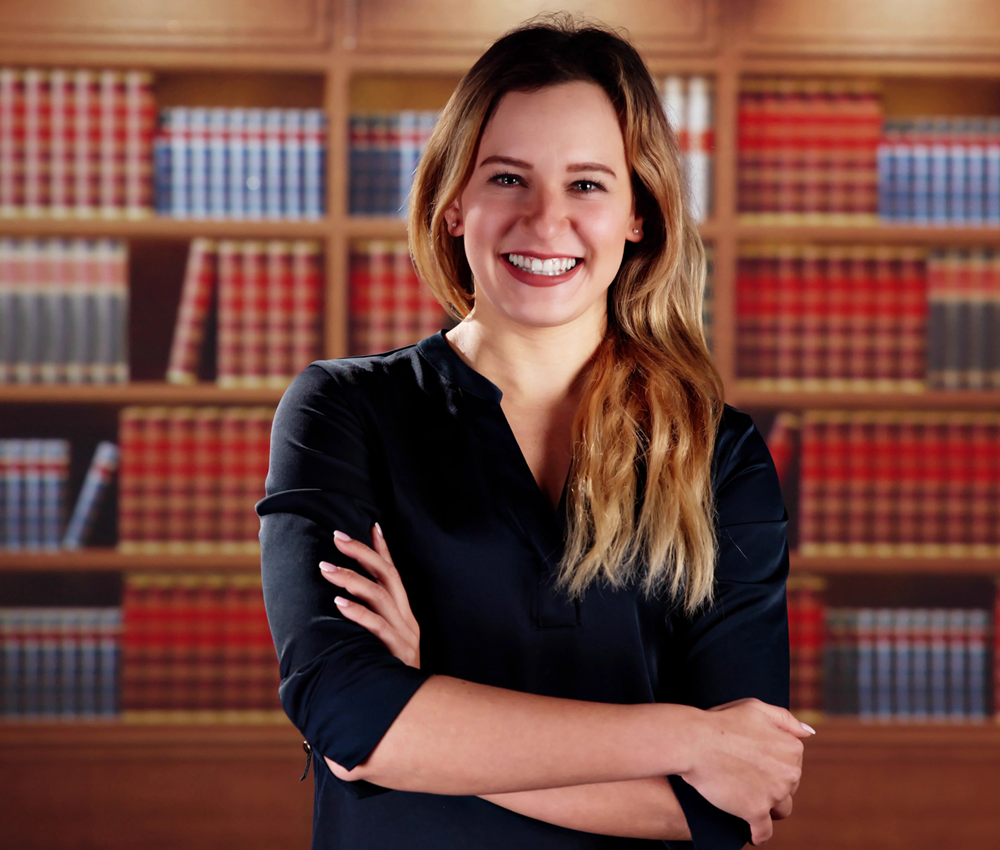Shapes, Stripes, and Steel: Courtroom Clashes That Prove Branding Wins
Shapes, Stripes, and Steel: Courtroom Clashes That Prove Branding Wins


Shapes, Stripes, and Steel: Courtroom Clashes That Prove Branding Wins
by Ayesha S.
Ask ten people what freedom sounds like, and one will mimic the thrum of a Harley. Ask another to picture upward motion, and you’ll see a fingertip drawing Nike’s swoosh in the air. Those reactions weren’t born overnight; they were forged in courtrooms as surely as in ad labs. A trio of recent disputes—Nike, Inc. v. Lotas (S.D.N.Y. 2020), Adidas Am., Inc. v. Thom Browne, Inc. (S.D.N.Y. 2024), and Harley‑Davidson Motor Co. v. SunFrog, LLC (E.D. Wis. 2018)—shows why brand guardianship matters and how context can turn a near‑match into either a windfall or a whimper.
Start with Nike. In Nike v. Lotas, No. 19‑cv‑5643, 2020 WL 6271044 (S.D.N.Y. Oct. 26, 2020), the Swoosh didn’t sue over a missing logo; it sued over a silhouette. Lotas’s sneaker shadowed the Air Force 1’s proportions so closely that test subjects recognized the shoe even when all color and text were stripped away. The court found those curves non‑functional and source‑identifying and then issued a preliminary injunction. What marketers can steal from that win is simple: a shape, repeated for decades, becomes shorthand for an entire narrative—urban cool in Nike’s case—and the law will step in to defend it.
Adidas learned a harder lesson. The sportswear giant hauled Thom Browne into court, claiming that Browne’s four parallel bars stepped too close to Adidas’s three. The jury disagreed. In Adidas Am., Inc. v. Thom Browne, Inc., No. 1:21‑cv‑561, 2024 WL 291234 (S.D.N.Y. Jan. 12, 2024), experts showed Browne’s $2,000 blazers target fashion editors, not weekend runners. Shoppers never confused the two. The result? Zero liability. For brand managers, the takeaway is to gauge the marketplace before firing litigation salvos; overreach can paint a bully badge on your own logo and hand your opponent a PR victory at your expense.
Then there’s Harley. In Harley‑Davidson Motor Co. v. SunFrog, LLC, 311 F. Supp. 3D 1000 (E.D. Wis. . 2018), a print‑on‑demand website lets users plaster Harley’s bar‑and‑shield on shirts and coffee mugs. SunFrog claimed safe harbor under the DMCA. The court wasn’t persuaded. It saw willful infringement, hammered the company with a $19 million judgment, and ordered stringent IP filters. Digital intermediaries everywhere tightened their upload gates the next week. The takeaway: platforms cannot shrug off brand theft as “user error”; the bill will land on their doorstep.
Roll those outcomes together, and three rules emerge. One: distinctive trade dress—be it a curve, a grille, or a stitch—deserves investment and defense. Two: similarity doesn’t equal infringement without actual confusion; know your audience segments before suing. Three: unauthorized use in the digital bazaar is enforceable, and courts expect platform owners to police repeat offenders.
In a crowded feed, branding is the flag that lets loyalists spot you from a mile off. Guard it with nuance—firm when legacy is hijacked, measured when market lanes hardly overlap—and your logo, your stripes, or your rumbling V‑twin will keep doing what brands do best: shorten a buyer’s decision to a single, confident heartbeat.
Business LinkedIn
From Logo to Heartbeat: Branding Through Authentic Legal Storytelling
Branding begins long before a prospect sees your logo. It starts the moment your story sparks emotion: relief that someone understands their problem, curiosity about your approach, respect for your values. In a sea of generic promises, that emotional ripple is what pulls the cursor toward your contact button.
Law firms often chase clicks with identical listicles, forgetting that clients hire people, not paragraph counts. Tell the origin of your niche—maybe the landlord who ignored your grandmother’s pleadings or the startup agreement you rewrote at 2 a.m. Real anecdotes hand readers a reason to remember you when their legal storm hits.
Voice is your fingerprint. Swap boilerplate for words you actually use in conversation; let regional details, favorite case cites, and even a dash of humor prove a human wrote the brief. Search engines now score that authenticity, rewarding pages that show experience instead of recycled clichés.
Consistency seals the connection. Post a Monday LinkedIn note, a Wednesday podcast snippet, a Friday FAQ—always in that same unmistakable tone. Each small drop widens the circle of people who trust your perspective. When a crisis arrives, they won’t search “lawyer near me”; they’ll search your name. That is branding at its quiet best.

How to Market a Solo or Small Law Firm Without Losing Credibility
How to Market a Solo or Small Law Firm Without Losing Credibility


How to Market a Solo or Small Law Firm Without Losing Credibility
by Jerome Hutchinson, JD
Solo attorneys and small law firm partners shoulder the dual burden of practicing law and generating business. Standing out without appearing self-promotional can feel nearly impossible in a crowded digital space. Yet visibility continues to be important, especially for law firms that rely on reputation and referrals to drive growth.
One misstep in tone or placement can diminish the trust that drives the client’s choice of law firm. Marketing a solo or small law firm requires more than basic tactics. It demands a strategy built on authority and relevance.
If your solo or small law firm is losing ground online, call KPC Marketing at (866) 457-2627 to see how a refined marketing strategy can establish authority without undermining professionalism.
Start With Substance, Not Sales
For solo and small law firms, credibility is earned through what they choose to share and where they show up. Here are some ways to build visibility while keeping the message grounded in substance.
Thought Leadership That Doesn’t Sound Like a Pitch
Most prospective clients evaluate law firms long before reaching out. Publishing helpful legal commentary or hosting a CLE session allows attorneys to establish credibility in places where it is earned, not purchased. Short summaries of recent rulings, legislative updates, or client-facing FAQs can transform a firm’s blog into a resource hub, without turning it into a sales page.
Position Expertise Where Decision-Makers Truly Focus
Profiles on directories like Justia or an optimized LinkedIn page are often more potent than expensive PPC ads. When a solo attorney’s experience is clearly documented through past speaking engagements, written work, and community involvement, prospective clients recognize value without needing persuasion.
Showcase Testimonials That Build Legitimacy
Client reviews and peer recognition carry weight. A curated selection of verified testimonials or professional endorsements does more to reinforce trust than scripted marketing copy ever could. Highlighting these authentically (not through inflated claims) sends the right message.
Scale Without Looking Like You’re Selling
Marketing doesn’t need to be loud in order for it to be effective. For firms aiming to expand their reach without compromising their tone, here are a few methods worth considering.
Be Present Where Your Clients Spend Time
Attorneys at solo and small law firms don’t need to be active across every platform. A consistent, informative presence on LinkedIn often proves more impactful than diluted attention on multiple channels. Sharing recent case developments or policy changes that affect the firm’s practice area positions the attorney as a resource, not a promoter.
Host Webinars with Real Takeaways
A solo attorney who leads a live session on common contract disputes or estate planning pitfalls demonstrates both accessibility and subject matter fluency. Recordings can later be used as blog content, shared via email, or repackaged as short LinkedIn clips, building equity over time without additional expenses.
Email Content That Informs, Not Sells
Instead of marketing blasts, use a monthly newsletter to share original insights, legal developments, or event invitations. Avoid promotional language; the goal is to keep the firm top-of-mind for the right reasons.
Sustain Visibility with Smart Publishing
Consistency and focus often make the difference between noise and traction. Here are a few ways to align your content strategy with client needs.
Blogging as a Professional Tool, not a Traffic Hack
Publishing helpful blog posts matters more than blogging frequently. Focus blog content on common client questions, recent legislation, or misunderstood legal processes—quality and consistency signal reliability, especially for solo firms where every impression counts.
Repurpose, Don’t Reinvent
A single well-developed article can anchor a week of content: a snippet for email, a tip for LinkedIn, a question for a webinar. This ensures the firm’s message remains coherent and reinforces its focus areas without duplication.
Measure What Matters
Track how content performs, but not just by the number of views it receives. Which posts drive actual consultations? Which newsletters generate replies? Strategy should shift based on data that reflects client behavior, not just search engine trends.
Credibility Can’t Be Bought. But It Can Be Built. Contact KPC Marketing
Marketing a solo or small law firm should never compromise credibility. With the right strategy, visibility and professionalism go hand in hand. Whether hosting a targeted webinar, maintaining a helpful blog, or engaging on LinkedIn with purpose, every move should build confidence, rather than suspicion.
The JD-powered team at KPC Marketing develops legal marketing strategies that emphasize clarity, authority, and return on investment. When every word counts, choose a partner who understands what’s at stake. Contact us today to discuss how we can help grow your law firm.

Your First Client Starts Here: 5 Steps to Launching a Successful Solo Law Firm
Your First Client Starts Here: 5 Steps to Launching a Successful Solo Law Firm


Your First Client Starts Here: 5 Steps to Launching a Successful Solo Law Firm
by Kristi Patrice Carter, JD
Recently passed the bar exam? Stuck at a firm that isn’t the right fit? Or maybe you’re just ready to hang up your shingle and make it on your own. As JD-powered strategists, we understand the challenges of starting a solo practice. We know how exciting and overwhelming it can be. Between marketing, networking, administrative, accounting, and legal tasks, there is a lot to do. The good news is that we’ve helped thousands of lawyers over the years and want to share five tips that can help you build a solid foundation while positioning your firm for long-term growth and success:
- Build Credibility. The best way to build credibility is to specialize in one or two practice areas. If you’re new to the legal game and don’t know which practice area to choose, that’s okay. Don’t rush the process. Crystalize your knowledge and skill set by first becoming a generalist and then honing your skill set by volunteering and taking specialized CLE or ABA courses and seminars. Focus on increasing your knowledge to build Credibility. And if you already know what specialty area you’d like to focus on, narrow it down even more. For instance, if you choose family law, drill down into it. Consider a career in family law that helps protect the rights of celebrities who are in their second or third marriages. The point is to establish Credibility by immersing yourself, becoming more knowledgeable, and building Credibility beyond what you learned in law school.
- Establish your brand and create a unique positioning statement. It’s never too early to build a solid brand. Obtain a professional domain, logo, and website. Choose brand colors that resonate with your targeted audience. Use those same brand colors consistently across all elements, from your logo to business cards, LinkedIn profile pages, social media posts, and videos. Grow your social media profile daily. Connect with like-minded individuals who can connect you to clients who need your services. Speak in an authentic and unique voice to build a solid reputation and attract top-notch clients.
- Network. Network and network some more. Word-of-mouth marketing is still one of the best ways to attract clients. When you’re exceptional at what you do, clients and other attorneys will market for you. They’ll showcase your talents for you. To take advantage of networking, attend CLEs that focus on networking. Join and actively participate in bar association functions. Host meet-and-greets and seminars to attract potential clients. Meet like-minded lawyers via social media platforms and legal Facebook groups.
- Learn about emerging legal technologies and use them responsibly. Lawyers who are most successful at running their practices utilize technology as it was intended. If they use AI, any output is thoroughly checked and double-checked to ensure it is accurate and compliant with relevant statutes and case law. They also apply advertising rules when using software programs to create ads. In essence, they are ethically responsible, understand the rules, and use technology to enhance their practices while staying compliant, which protects their reputations and licenses. Finally, they read legal tech information blogs and take online courses or seminars through the ABA or other associations.
- Market to your target audience. Not only do they understand their target market, but they also market to them. Successful solo practitioners recognize that effective legal marketing is crucial for achieving strategic growth. They understand that great marketing builds trust and helps you strategically position your firm. By understanding what your clients need and providing them with those services, you inevitably set yourself up for success.
Effective marketing is about being visible to prospective clients and positioning yourself as knowledgeable and trustworthy counsel. It’s about creating a strong offline and online presence with an aesthetically pleasing website, engaging social media posts, and a powerful marketing message. Always follow state and ABA advertising guidelines. With careful planning, going solo can be a natural next step rather than a giant leap of faith.
KPC Marketing is here to support you every step of the way. DM us today, “KPC Help,” for a free case review so you, too, can elevate your marketing game with our JD-powered marketing strategists.

Can You Legally Call Yourself “The Best Lawyer”?
Can You Legally Call Yourself “The Best Lawyer”?


Can You Legally Call Yourself “The Best Lawyer”?
by Kristi Patrice Carter, JD
I’ve been testing ChatGPT to see what all the buzz is about. I asked it to create a polished social media post for a personal injury lawyer in Illinois.
The result? Visually appealing. Sounded professional.
The headline read:
“Call the Best Lawyer in Illinois.”
Looks good? ✅ Yes.
Legal? ❌ Absolutely not.
Under Illinois Rule of Professional Conduct 7.1, the framework is set to guide and support professionals in their duties, ensuring that attorneys remain ethical and clients are protected and not improperly influenced.
This includes:
- False or misleading communications about the lawyer’s services or abilities. Ex. claiming that you are licensed in 3 states when you’re licensed in two)
- Misrepresentations and omissions that could lead to misunderstandings or create unjustified expectations. Ex. You claim that you’re a lion in the courtroom when you haven’t won a case and often don’t show up for hearings or court.” Or, you state you have 10 years of experience when you have 2 years of experience.
- Claims that can’t be objectively verified, such as calling yourself “the best.”
- Unsubstantiated comparisons to other lawyers, such as saying you’re more loyal to clients than your competitor.
Violations of the above can trigger Attorney Registration and Disciplinary Commission (ARDC) sanctions or state bar disciplinary action.
Anyone (a client, peer, or competitor) can file a grievance. Both entities are responsible for regulating the legal profession and take misleading lawyer advertising seriously, regardless of whether AI is used to generate the content in question.
Discipline ranges from warnings to more formal consequences like suspension or disbarment.
✅ You can say “award-winning” or “top-rated” if you can prove it.
So go ahead and brag about that Burton Award — if you’ve earned it.
However, don’t claim to be “the best” unless you’ve objective, verifiable proof, especially in Illinois and other states with similar regulations.
Bottom line:
Don’t claim what you can’t prove. Know your state’s advertising rules.
Unlike AI tools that can create risky copy, KPC Marketing delivers legally accurate, bar-compliant messaging that builds trust, not liability.
We know the rules. And we follow them.
#AttorneyEthics #LegalMarketingTips #BarCompliance #LawyerAds #KPCMarketing #AvoidBarComplaints

Five Key Steps for Starting Your Solo Practice A s a New Attorney
Five Key Steps for Starting Your Solo Practice A s a New Attorney


Five Key Steps for Starting Your Solo Practice A s a New Attorney
By Allegra Abramson
New lawyers have many exciting career options at their fingertips. While somewill begin establishing themselves at large firms, legal nonprofits, andgovernmentagencies, other young attorneys graduate from law school totransition into solo practice as soon as possible. Going solo might sounddaunting or like a distant dream when you’ve just finished school,but there areseveral strategic moves fresh attorneyscan make to set themselves up for long-term success in transitioning to solo practice when the time is right!
Building Your Niche
One of the first steps you’ll wantto take isto crystallize what area of law you’dlike to focus on. A great way to explorevarious areas of the law is to beginbroadly and narrow down based on your likes and dislikes while you get your feetwet. If you’re interested in litigation, for example, starting in a role such as publicdefender will help you quickly build crucial litigation skills that will translate well toa solo practice down the line—and you may be able to meet future clients andbuild up a name in your community early on in your career.
Over time, it will be easier to set your skills apart by focusing on a smallernichearea that interests you. Suppose you are interested in energy law, for example.In that case, you can take CLEs to concentrate on environmental issues,ensuring you build the technical know-how to advocate effectively in that area. Ifyou’d like tomake a career helping small businesses, you might consider a moregeneral transactional law job to learn all about contract negotiations andcorporate law regulations. Joining relevant bar associations in your desiredpractice area and location is also a great way to increase your knowledge baseand network with other professionals as you narrow your options
Building Your Brand
If you want to open a solo practicein the future, it’s important to start buildingyour brand early on. Consider securing a professional domain name by creatinga basic website or blog. You can also grow a presence on social media platformslike LinkedIn, where interacting with other professionals in your desired practicearea will help you build essential knowledge and meet peoplewith similarinterests and goals, who could serve as valuable thought partners. This is also agreat way to stay in contact with associates from law school and your variousalumni associations, which are often great resources for connecting new lawyers. You might even enjoy sharing insights and commentary with like-minded professionals, which will help you carve out your voice and reputation in your niche.
Building Your Technical Skills
Caselaw and legal trends aren’t the only areas today’s lawyers must stayeducated on—it’s more important than ever for attorneys to learn about legaltechnology, particularly as exciting new generative AI programs for lawyersemerge on the scene. Being tech-savvy is a requirement for any lawyer wishingto grow a private practice. Consider taking CLEs in this area, reading legal techinformation blogs, staying apprised of technology ethics considerations, and evenusing free trials of various technologies to see which may aid you best when youopen your firm.
Building Your Marketing Skills
As a solo attorney, you must work diligently to build a strong client base. Gettingyour name out there, establishing a sound reputation, and finding target clientscan be difficult. Marketing might not have been a big part of your training in lawschool, but it’s essential to succeeding as a solo practitioner.
Start by identifying your target client, where they congregate, become aware ofany pressing legal problems they might face, and how your firm can provide aworkable solution. Spend timeevaluatingyour competitors’digital presence,strengths and weaknesses, and how theyobtain andengage with clients. Next,builda strong offline and online presence with anaesthetically pleasingwebsite,engaging social mediaposts, andapowerful marketingmessage that is presentin online and offline content.
Effective marketing isn’tjustaboutselling yourself. It’s also about showing upconsistently. It’s about being visible to those who need your services andpositioning yourself as a knowledgeable and trustworthy legal professional whotakes care of client business.
Consider Hiring a Marketing Firm
If you don’t have the time or skillset to market your solo firm, you might considerhiring marketing experts to do it for you.When first starting, it can be hard tostrike the right tone, and a marketing companywill know how to get your nameout there.
Going solo doesn’t have to be a giant leap of faith—with careful planning, it canbe a logically built bridge. Start early, brick by brick, and your future practice willfeel less like a risk and more like a natural next step!

The Attorney’s Guide to Internet Marketing Success
The Attorney’s Guide to Internet Marketing Success


The Attorney’s Guide to Internet Marketing Success
By Allegra Abramson
If you’re an attorney looking to grow your practice, building a strong presence online is essential for growth and visibility. Internet marketing for attorneys can be a challenge, as it’s rarely taught in law school, but building your online presence is a key step in developing your client base and cementing your reputation as a trustworthy, competent lawyer. Mastering attorney online marketing takes some work upfront, but any firm or solo practitioner can succeed with the right strategies. Here are our key steps that will help your practice stand out online.
1. Build a Strong Brand Identity:
Your firm’s voice, visuals, and values should be consistent across all online platforms, enabling your prospects and clients to remember you and what legal services you provide to the community. Clients need to connect to you and feel as if you are trustworthy even before they inquire about your services. Project your confidence and competence by starting with a solid, well-developed brand. Spend time checking out other firms in various practice areas to understand what kind of attorney online marketing resonates with you and your firm. Not sure where to start? A logo is a great place to practice with different styles and themes!
2. Invest in a Professional Website:
Consider your website your digital storefront. Is it user-friendly and easy to navigate? Did you include a tagline? Is it memorable? Is your Contact Us page visible? Is your website optimized for mobile and tablets? Did you install analytics to see where traffic is coming from?
3. Include Client-Focused Content on Your Website and Social Media:
Clients will have questions before they even call you. Does your website include an FAQ? Make sure it’s easy for clients to schedule consultations or even speak with a chatbot to get preliminary questions answered. Tip: Research legal technology. Today, many applications can help make your website stand out.
4. Prioritize SEO:
Attorney online marketing is most successful when SEO-optimized because SEO optimization means your content will appear on search engines. If you aren’t sure how to go about structuring your content for SEO, a legal marketing firm can help you.
5. Leverage Social Media to Your Advantage:
Social media websites like Facebook and LinkedIn can help you with attorney online marketing. Select a few platforms to focus on and only focus on those. Create stellar content for those platforms to build followers, increase engagement, and provide interesting, meaningful information for prospects and clients. Consider posting blog posts or short articles in your practice area to attract clients while establishing a stronger reputation in the industry.
6. Reputation Management Matters:
Online reviews are often the first thing a potential client sees about your firm. Ensure you closely monitor reviews on websites like Google, Yelp, and Avvo. Respond to feedback professionally and politely. Request that satisfied clients leave reviews for you, too—authentic; positive reviews will help grow your practice and reputation immensely.
7. Use Paid Ads Strategically:
Internet marketing for attorneys works best with online advertising. Although ads can be expensive, they are very effective if you understand your target and carefully manage your ad spend account. By focusing location-specific or lower competitive keywords, you can reduce ad costs. For example, instead of placing an ad that says, “best personal lawyer in the world” (which could lead to ethnical issues and sanctions) but, you could say “Highly rated personal injury lawyer in [your city]”. The second article will keep you out of trouble but enable you to market to clients in your immediate area who might want your services. Plus, you’re not making misleading, unverifiable, or false claims. Carefully managing ads with functional services, like website management or search engine optimization, is important but, it can be challenging. A professional marketing firm can assist you in balancing ads with a user-friendly interface and properly optimized content.
Attorney online marketing isn’t just about posting your content everywhere—it’s about being visible where it matters most to your future clients. Working to establish yourself online in your community and practice area will take creativity and energy. Still, it will garner positive results, and you may have fun. Follow our seven key steps and watch your firm grow!

